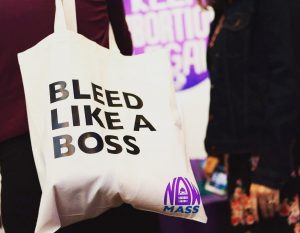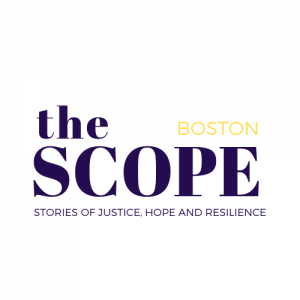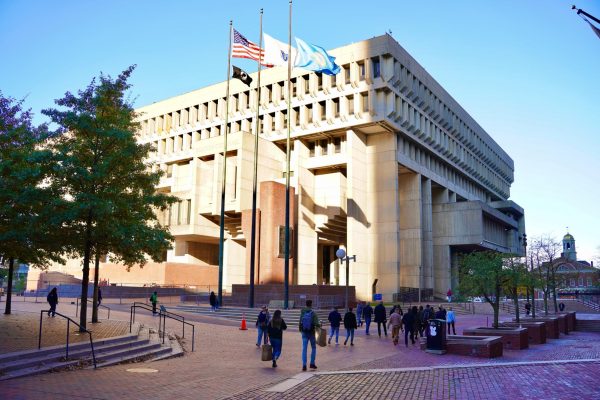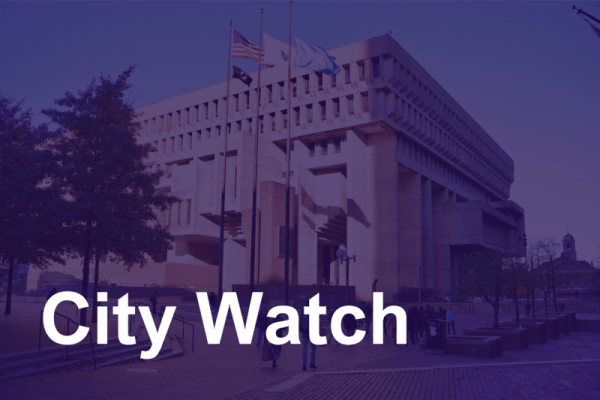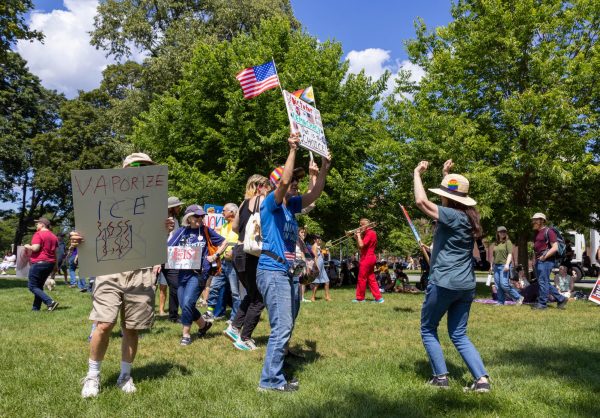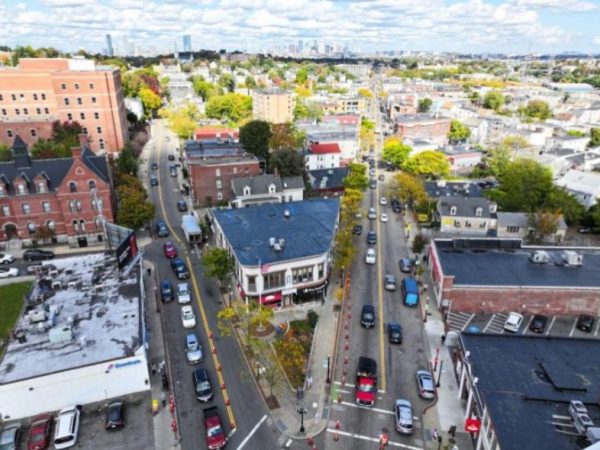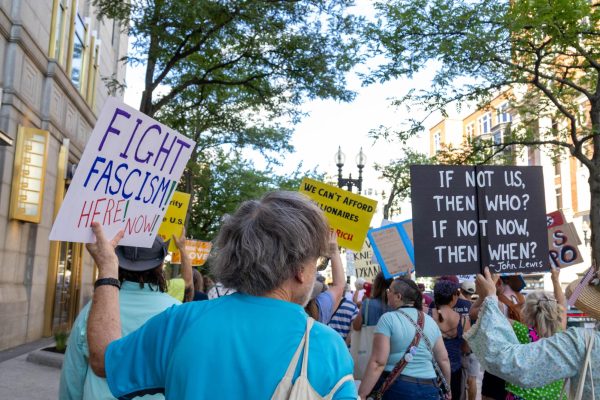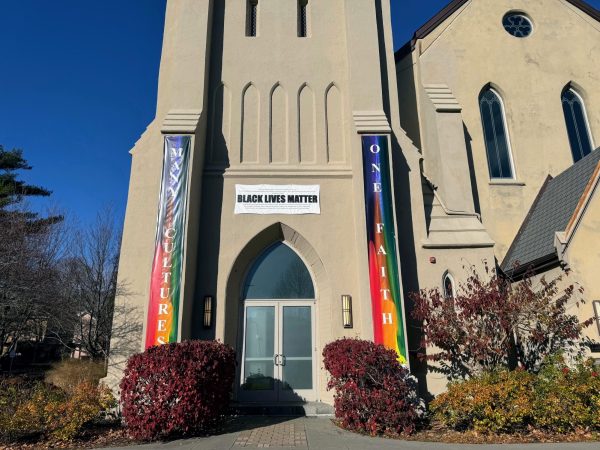Boston City Council discusses new supervision protocols for BPD overtime, pedestrian safety and language access
How should the city create new supervision protocols and audit protocols for police overtime? How can it improve pedestrian safety and traffic enforcement to reduce serious crashes in the city? How can city services become more accessible to speakers of different languages? The council discussed these and other issues during this week’s virtual Boston City Council meeting.
The following five dockets were discussed:
Oversight protocols for Boston Police Department for overtime – Docket #1039
In 2012, The Boston Globe reported the overtime fraud scheme in the Boston Police Department (BPD), revealing that officers collected “more than 400 hours of overtime pay over a two-year period for court appearances that were not officially requested by the prosecutors overseeing the cases.”
Within the past couple months, Councilor Ricardo Arroyo requested the court’s overtime records, which are completed on paper. He has yet to receive the paper documents but is reviewing electronic records of officers who reported time as they sought to be paid. In early September, nine former BPD officers were indicted for overtime fraud.
“My hope is that we can get a clearer picture of what changes took place after this issue in 2012, and why the purpose of paper documentation that makes it incredibly difficult to audit this process is ongoing,” Arroyo said. He wants to know “how we can actually create new supervision protocols and audit protocols for these kinds of issues” not just with BPD but across the city.
Councilor Kenzie Bok said the audit information will be combined with the quarterly overtime oversight hearings, which will be released at the end of October or early November when all of the Quarter 1 data has been collected.
The docket was assigned to the Ways and Means Committee.
Pedestrian safety and traffic enforcement to reach Vision Zero – Docket #1040
Councilor Ed Flynn calls each year for a hearing on the safety of Boston’s roads, he said. Following a tragedy in South Boston in 2018, he created a South Boston Safe Streets 12 Point Plan.
Flynn’s ordered hearing will discuss “ways that we can further improve traffic calming measures with infrastructure improvements, slower speeds, stricter enforcements.”
Flynn works closely with the Boston Transportation Department and BPD on these traffic issues, he said. His suggestions for infrastructure improvements include speed humps, crosswalks, curb extensions and reduced speed limits.
“We also have experienced serious and tragic crashes in our district, and they remind us that the work is never over when it comes to achieving Vision Zero: no serious or fatal crashes in our city,” Flynn said.
The docket was referred to the Committee on Planning, Development and Transportation.
Improving Language and Communications Access for City Services – Docket #1041
A hearing in May on the status of language access in the midst of COVID was the first time the city council had ever held a hearing that was simultaneously interpreted in multiple languages, Councilor Julia Mejia said.
She believes increased language accessibility should be the norm. Mejia called for processes “to make language access service stronger and more accountable to the people.”
This includes working with members of the public to create language access guidelines for each department and expanding the number of languages the city must provide beyond the five major languages spoken in the city. A text-to-speech component would also make it easier for people who can’t read or write to access vital information, she said.
Mejia would also like to see plain language and cultural competency clauses. The “city needs to respect cultural diversity when translating vital information and ensure that we are communicating in a way that people will actually understand,” she said.
The docket was assigned to the Committee on Government Operations.
Recognition of October as National Co-op Month – Docket #1044
A cooperative business or organization, or co-op, is owned by and operated for the benefit of its members.
“They all operate to build democratic communities and equally shared economic power,” Councilor Annissa Essaibi-George said. “Co-ops have been part of the fabric of the United States for over 100 years.”
She would like the month of October to celebrate and encourage Boston citizens to support the “creative and innovative co-ops” throughout the city, ranging from community composting to Democracy Brewing.
“It really cultivates the kind of stable, shared ownership society that really protects our democratic values and a sense of community,” Bok said.
The docket was adopted.
Recognition of October as Domestic Violence Awareness Month – Docket #1045
Domestic Violence Awareness Month has been recognized nationally since 1981, and nearly 10 million people per year are physically abused by intimate partners in the US, Councilor Michael Flaherty said.
The issue is particularly exacerbated due to COVID-19 quarantine and lockdown measures. “As a result of COVID-19, many individuals in their families find themselves at home with an abuser and with less access to their communities and networks of support,” Flaherty said.
He mentioned Stephanie Brown, CEO of domestic violence support nonprofit Casa Myrna, who was honored Tuesday at the 2020 Shattuck City Champion Awards for her work to reframe how our communities view domestic violence and advocate for changes in the legal system to protect survivors. Casa Myrna offers residential programs, housing assistance, financial literacy and other support services for domestic violence survivors.
Other survivor supportive organizations Flaherty cited include the Boston Area Rape Crisis Center and the Urban League of Eastern Massachusetts.
Through continued work with providers including Northeastern Law’s Domestic Violence Institute, Councilor Andrea Campbell hopes to navigate these conversations so everyone feels included, especially groups like the LGBTQ and immigrant communities.
We need “creative ways to allow for folks who are currently experiencing an incident of domestic violence or child abuse or sexual assault or something else to be able to report that,” she said.
The docket was adopted.
To report cases of domestic violence, anonymously call the CrimeStoppers Tip Line at 1 (800) 494-TIPS or text the word ‘TIP’ to CRIME (27463). In cases of emergency, please call 911.
Watch the whole City Council meeting here:



